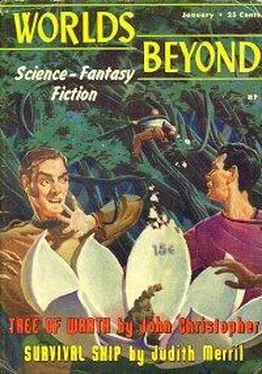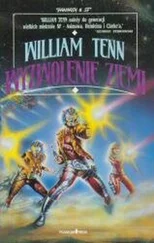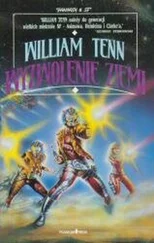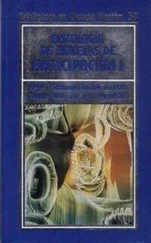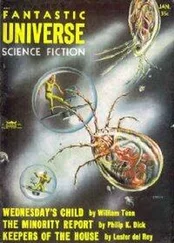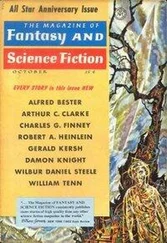William Tenn - Null-P
Здесь есть возможность читать онлайн «William Tenn - Null-P» весь текст электронной книги совершенно бесплатно (целиком полную версию без сокращений). В некоторых случаях можно слушать аудио, скачать через торрент в формате fb2 и присутствует краткое содержание. Год выпуска: 1951, Издательство: Hillman Periodicals, Inc., Жанр: Фантастика и фэнтези, на английском языке. Описание произведения, (предисловие) а так же отзывы посетителей доступны на портале библиотеки ЛибКат.
- Название:Null-P
- Автор:
- Издательство:Hillman Periodicals, Inc.
- Жанр:
- Год:1951
- ISBN:нет данных
- Рейтинг книги:3 / 5. Голосов: 1
-
Избранное:Добавить в избранное
- Отзывы:
-
Ваша оценка:
- 60
- 1
- 2
- 3
- 4
- 5
Null-P: краткое содержание, описание и аннотация
Предлагаем к чтению аннотацию, описание, краткое содержание или предисловие (зависит от того, что написал сам автор книги «Null-P»). Если вы не нашли необходимую информацию о книге — напишите в комментариях, мы постараемся отыскать её.
Null-P — читать онлайн бесплатно полную книгу (весь текст) целиком
Ниже представлен текст книги, разбитый по страницам. Система сохранения места последней прочитанной страницы, позволяет с удобством читать онлайн бесплатно книгу «Null-P», без необходимости каждый раз заново искать на чём Вы остановились. Поставьте закладку, и сможете в любой момент перейти на страницу, на которой закончили чтение.
Интервал:
Закладка:
Newspapers in other states were invited to copy.
They did, slowly at first, then with an accelerating, contagious enthusiasm. Indeed, as the intense public interest in this symbol of stability, this refugee from the extremes, became manifest, newspaper columns gushed fountains of purple prose about the “Normal Man of Fillmore.”
At Nebraska State University, Professor Roderick Klingmeister noticed that many members of his biology class were wearing extra-large buttons decorated with pictures of George Abnego. “Before beginning my lecture,” he chuckled, “I would like to tell you that this ‘normal man’ of yours is no Messiah. All he is, I am afraid, is a bell-shaped curve with ambitions, the median made flesh—”
He got no further. He was brained with his own demonstration microscope.
Even that early, a few watchful politicians noticed that no one was punished for this hasty act.
The incident could be related to many others which followed: the unfortunate and unknown citizen of Duluth, for example, who—at the high point of that city’s Welcome Average Old Abnego parade—was heard to remark in good-natured amazement, “Why, he’s just an ordinary jerk like you and me,” and was immediately torn into celebratory confetti by horrified neighbors in the crowd.
Developments such as these received careful consideration from men whose power was derived from the just, if well-directed, consent of the governed.
George Abnego, these gentry concluded, represented the maturation of a great national myth which, implicit in the culture for over a century, had been brought to garish fulfillment by the mass communication and entertainment media.
This was the myth that began with the juvenile appeal to be “A Normal Red-Blooded American Boy” and ended, on the highest political levels, with a shirt-sleeved, suspendered seeker after political office boasting. “Shucks, everybody knows who I am. I’m folks—just plain folks.”
This was the myth from which were derived such superficially disparate practices as the rite of political baby-kissing, the cult of “keeping up with the Joneses,” the foppish, foolish, forever-changing fads which went through the population with the monotonous regularity and sweep of a windshield wiper. The myth of styles and fraternal organizations. The myth of the “regular fellow.”
There was a presidential election that year.
Since all that remained of the United States was the Middle West, the Democratic Party had disappeared. Its remnants had been absorbed by a group calling itself the Old Guard Republicans, the closest thing to an American Left. The party in power—the Conservative Republicans—so far right as to verge upon royalism, had acquired enough pledged theocratic votes to make them smug about the election.
Desperately, the Old Guard Republicans searched for a candidate. Having regretfully passed over the adolescent epileptic recently elected to the governorship of South Dakota in violation of the state constitution—and deciding against the psalm-singing grandmother from Oklahoma who punctuated her senatorial speeches with religious music upon the banjo—the party strategists arrived, one summer afternoon, in Fillmore, Wisconsin.
From the moment that Abnego was persuaded to accept the nomination and his last well-intentioned but flimsy objection was overcome (the fact that he was a registered member of the opposition party) it was obvious that the tide of battle had turned, that the fabled grass roots had caught fire.
Abnego ran for president on the slogan “Back to Normal with the Normal Man!”
By the time the Conservative Republicans met in convention assembled, the danger of loss by landslide was already apparent. They changed their tactics, tried to meet the attack head-on and imaginatively.
They nominated a hunchback for the presidency. This man suffered from the additional disability of being a distinguished professor of law in a leading university; he had married with no issue and divorced with much publicity; and finally, he had once admitted to a congressional investigating committee that he had written and published surrealist poetry. Posters depicting him leering horribly, his hump twice life-size, were smeared across the country over the slogan: “An Abnormal Man for an Abnormal World!”
Despite this brilliant political stroke, the issue was never in doubt. On Election Day, the nostalgic slogan defeated its medicative adversary by three to one. Four years later, with the same opponents, it had risen to five and a half to one. And there was no organized opposition when Abnego ran for a third term…
Not that he had crushed it. There was more casual liberty of political thought allowed during Abnego’s administrations than in many previous ones. But less political thinking and debating were done.
Whenever possible, Abnego avoided decision. When a decision was unavoidable, he made it entirely on the basis of precedent. He rarely spoke on a topic of current interest and never committed himself. He was garrulous and an exhibitionist only about his family.
“How can you lampoon a vacuum?” This had been the wail of many opposition newspaper writers and cartoonists during the early years of the Abnegite Revolution, when men still ran against Abnego at election time. They tried to draw him into ridiculous statements or admissions time and again without success, Abnego was simply incapable of saying anything that any major cross-section of the population would consider ridiculous.
Emergencies? “Well,” Abnego had said, in the story every schoolchild knew, “I’ve noticed even the biggest forest fire will burn itself out. Main thing is not to get excited.”
He made them lie down in low-blood-pressure areas. And, after years of building and destruction, of stimulation and conflict, of accelerating anxieties and torments, they rested and were humbly grateful.
It seemed to many, from the day Abnego was sworn in, that chaos began to waver and everywhere a glorious, welcome stability flowered. In some respects, such as the decrease in the number of monstrous births, processes were under way which had nothing at all to do with the Normal Man of Fillmore; in others—the astonished announcement by lexicographers, for example, that slang expressions peculiar to teenagers in Abnego’s first term were used by their children in exactly the same contexts eighteen years later in his fifth administration—the historical leveling-out and patting-down effects of the Abnegite trowel were obvious.
The verbal expression of this great calm was the Abnegism.
History’s earliest record of these deftly phrased inadequacies relates to the administration in which Abnego, at last feeling secure enough to do so, appointed a cabinet without any regard to the wishes of his party hierarchy. A journalist, attempting to point up the absolute lack of color in the new official family, asked if any one of them—from Secretary of State to Postmaster-General—had ever committed himself publicly on any issue or, in previous positions, had been responsible for a single constructive step in any direction.
To which the President supposedly replied with a bland, unhesitating smile, “I always say there’s no hard feelings if no one’s defeated. Well, sir, no one’s defeated in a fight where the referee can’t make a decision.”
Apocryphal though it may have been, this remark expressed the mood of Abnegite America perfectly. “As pleasant as a no-decision bout” became part of everyday language.
Certainly as apocryphal as the George Washington cherry-tree legend, but the most definite Abnegism of them all was the one attributed to the President after a performance of Romeo and Juliet. “ It is better not to have loved at all, than to have loved and lost,” he is reported to have remarked at the morbid end of the play.
Читать дальшеИнтервал:
Закладка:
Похожие книги на «Null-P»
Представляем Вашему вниманию похожие книги на «Null-P» списком для выбора. Мы отобрали схожую по названию и смыслу литературу в надежде предоставить читателям больше вариантов отыскать новые, интересные, ещё непрочитанные произведения.
Обсуждение, отзывы о книге «Null-P» и просто собственные мнения читателей. Оставьте ваши комментарии, напишите, что Вы думаете о произведении, его смысле или главных героях. Укажите что конкретно понравилось, а что нет, и почему Вы так считаете.
